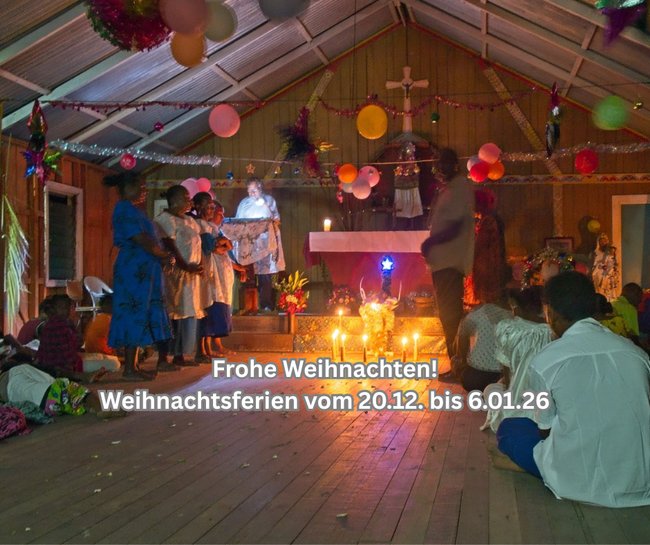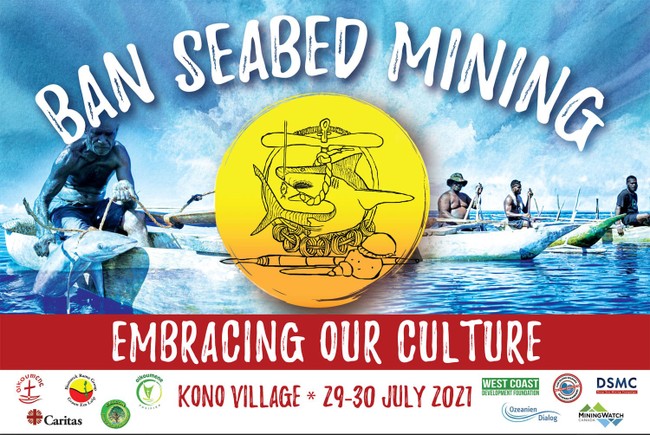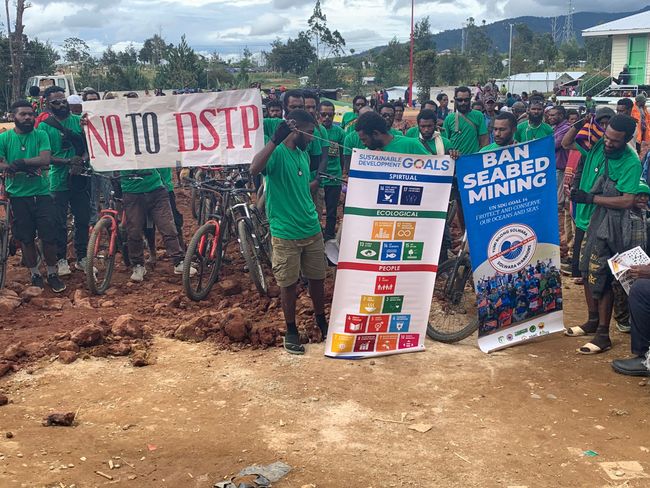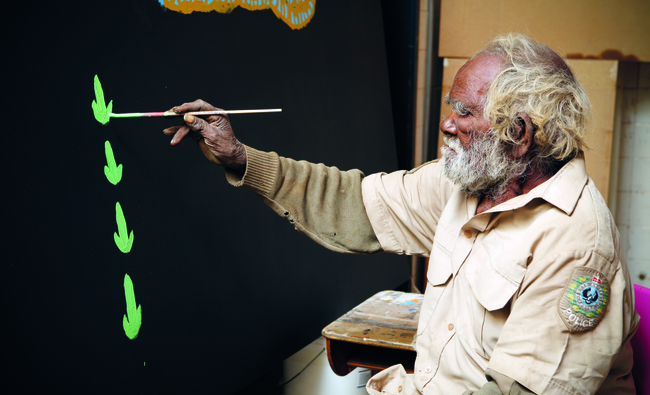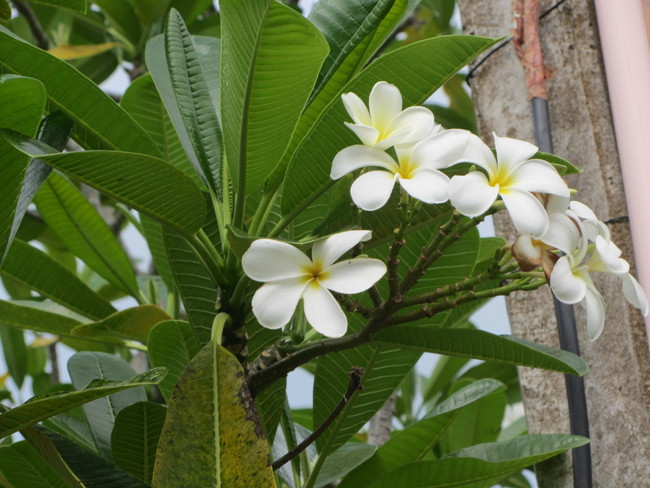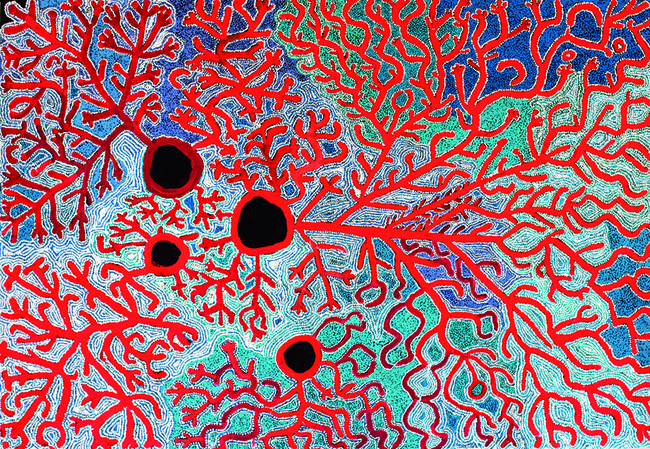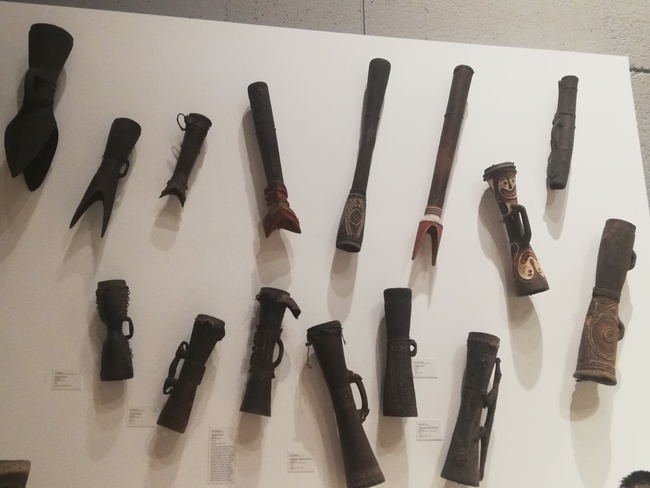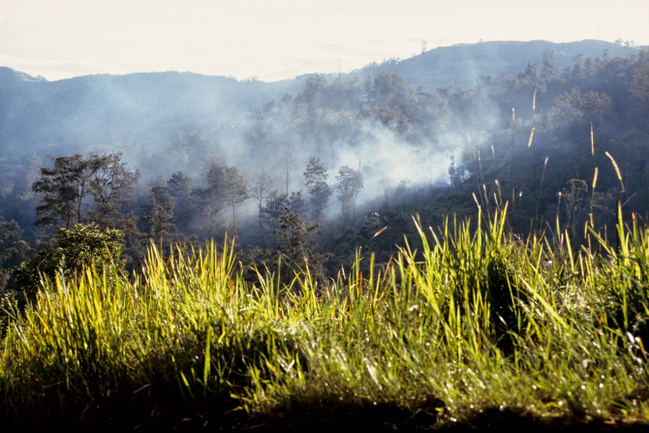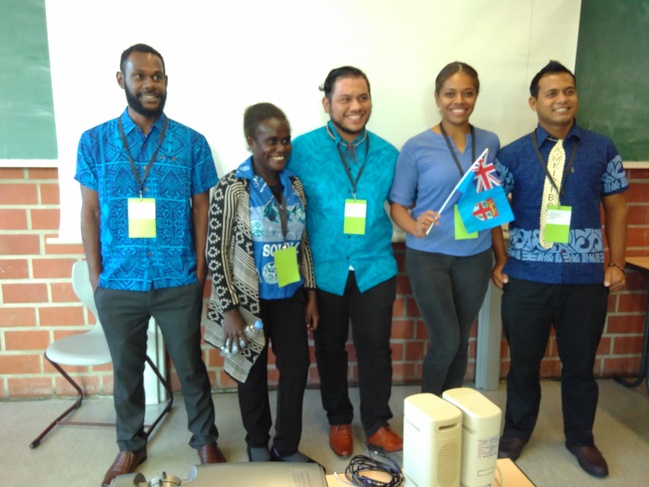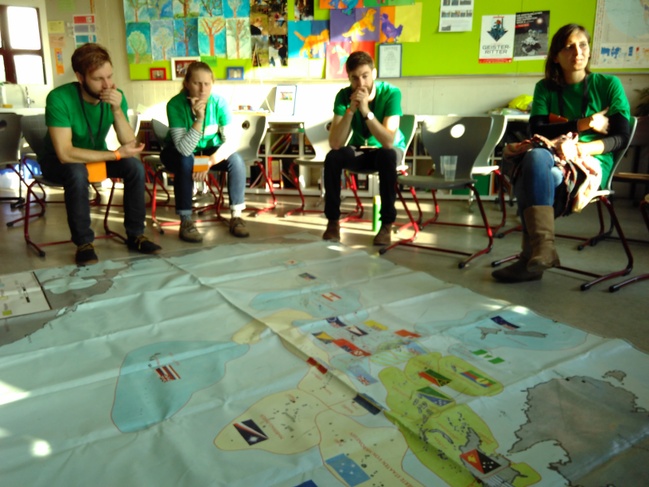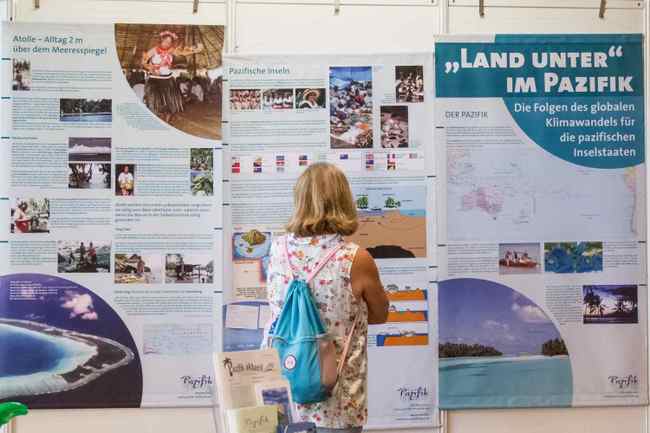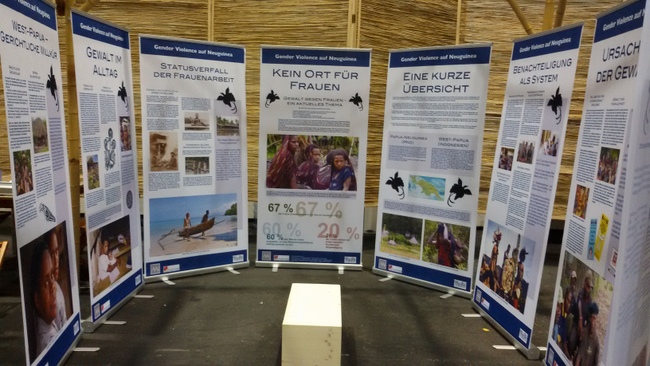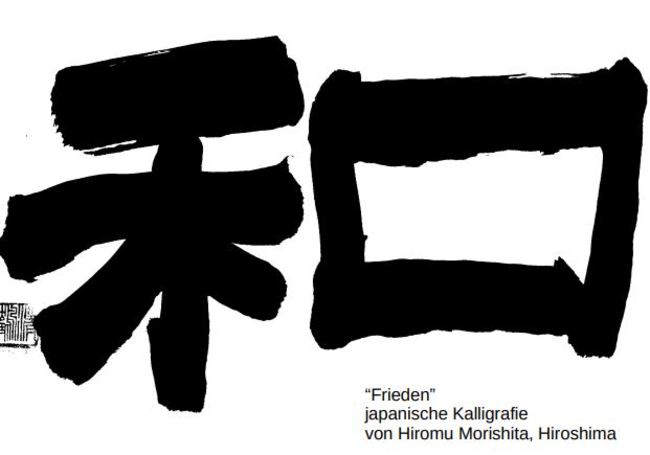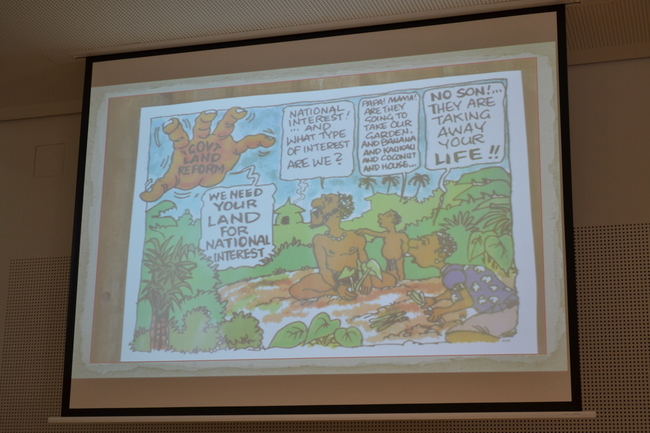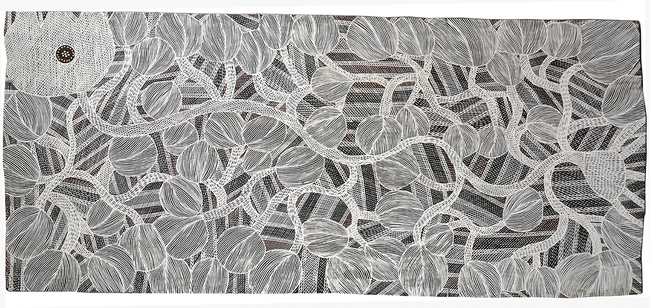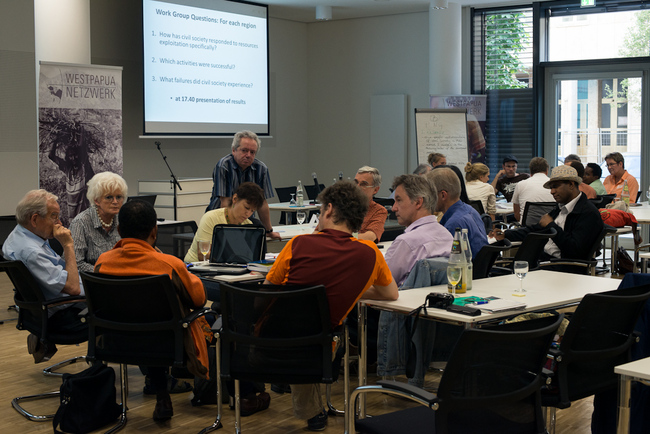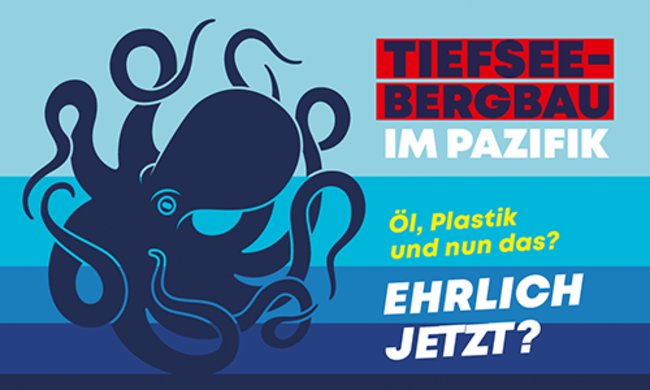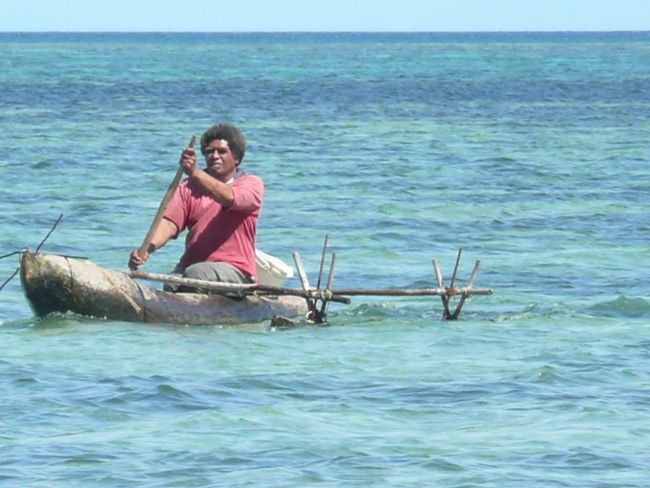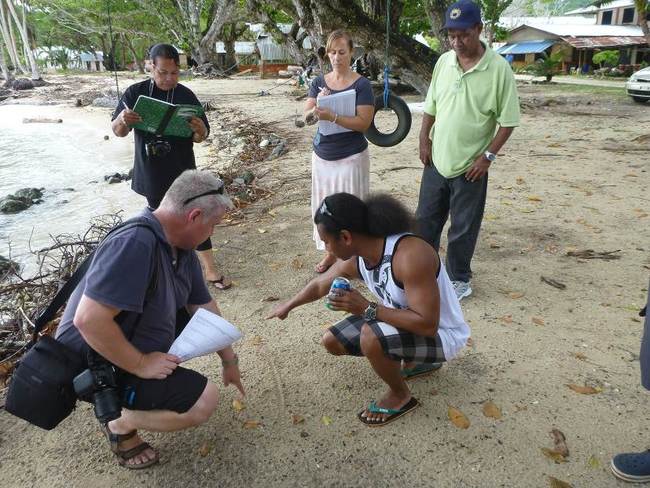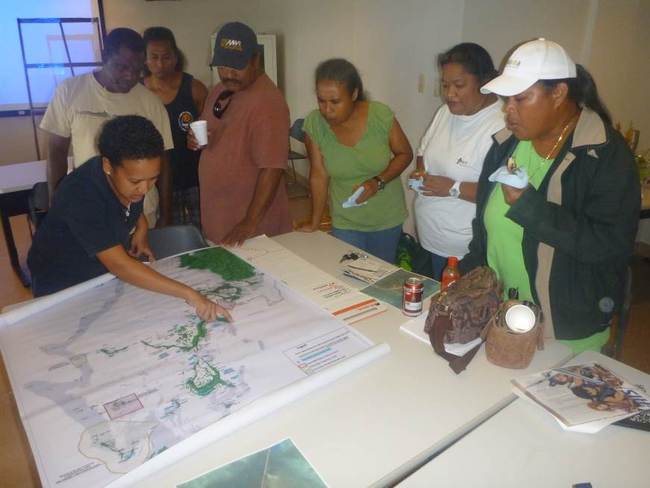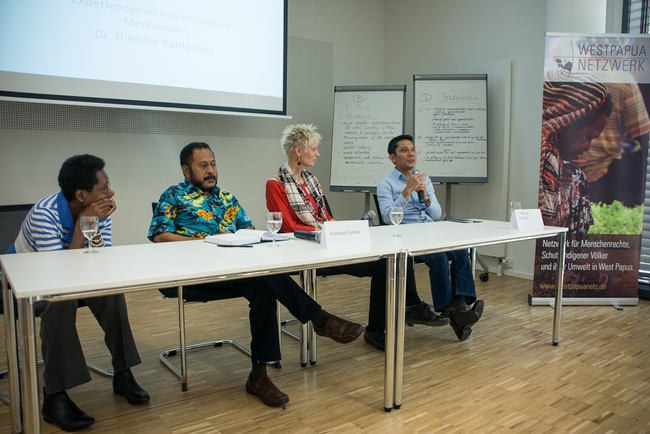Don't ever whisper
19.06.2013: Buch-Neuerscheinung aus den Marshall-Inseln
Don’t Ever Whisper — Darlene Keju: Pacific Health Pioneer, Champion for Nuclear Survivors by Giff Johnson.
443pages, ISBN-13: 978-1489509062
Don’t Ever Whisper tells the powerful story of a woman from a tiny Pacific island who championed the cause of nuclear weapons test survivors when others were silent, and who later implemented unparalleled community health programs and services that gave hope to a generation of troubled youth. Don’t Ever Whisper is the stirring account of Marshall Islander Darlene Keju’s struggle to gain an American education despite disadvantages of language and resources, and to use that education first to expose to the world a United States government cover up of its nuclear weapons testing program in her islands, and later to inspire young Marshall Islanders to make changes in their personal behavior to transform the health of their communities.
Darlene remained ignorant for decades about the cancer-causing radioactive fallout that rained down on her and thousands of unsuspecting islanders. But she used her American education to pierce the veil of secrecy shrouding the U.S. government’s hydrogen bomb tests at Bikini and Enewetak atolls in the 1950s. Darlene took to a global stage at the World Council of Churches Assembly in Canada to tell the world about the health impact of these nuclear tests, and of the U.S. Army’s discrimination against Marshall Islanders at its missile-testing base at Kwajalein Atoll. A U.S. Ambassador accused her of creating “nauseating propaganda.” But secret U.S. nuclear test-era documents that have come to light in recent years — and are detailed in this biography — document the U.S. government’s deliberate concealment of the true story behind the conduct of its weapons tests.
Don’t Ever Whisper also tells the inspiring story of Darlene’s further transformation to educational innovator, whose community health programs had far-reaching effects in her Pacific nation. Through Youth to Youth in Health, a non-government organization Darlene pioneered, she went to bat for marginalized young people, a largely ignored population with little hope, low self-esteem, and a penchant for expressing their frustrations by suicide and other anti-social behavior. As told in Don’t Ever Whisper, Darlene empowered women, young people, and their communities to take control of their own health and economic well being through work that was praised as a model for the Pacific by the U.S. Public Health Service, the United Nations Population Fund, and other international organizations. To order the print edition of Don’t Ever Whisper, go to: www.createspace.com/4168170. A Kindle edition will also be released in the near future.
For more information about Don’t Ever Whisper, including videos of Darlene’s riveting speech to the World Council of Churches Assembly in 1983 and Youth to Youth in Health activities in the Marshall Islands, go to: www.donteverwhisper.com/.
Hier kann das Buch online bestellt werden: www.createspace.com/4168170
Pressemitteilung von Autor Giff Johnson:
The powerful story of a woman from the Marshall Islands who championed the cause of nuclear weapons test survivors when others were silent, and who implemented innovative community health programs and services that gave hope to a generation of troubled youth is detailed in a just-released biography, Don’t Ever Whisper — Darlene Keju: Pacific Health Pioneer, Champion for Nuclear Survivors. Written by Keju’s husband of 14 years Giff Johnson, the editor of the Marshall Islands Journal, the weekly newspaper published in Majuro, the 443-page book has been published by CreateSpace Independent Publishing and is available through Amazon.com. “This book is a story of a personal transformation of a young lady who once knew little English to an advocate for her people, the victims of the weapons of war,” writes Fr. Francis X. Hezel, SJ, in the foreword to the new book. “Then the further transformation to educational innovator, whose program had far-reaching effects throughout her island nation.” Hezel, who founded the Jesuit think tank known as the Micronesian Seminar in the early 1970s and is now based in Guam, says the book is the “tale of a woman who loved her people, seeing them as so much more than victims of nuclear irradiation and colonial despoilment. For those of us who have cheered on island Micronesia through the years, it’s a welcome change to read a tribute to someone who is home grown. Although no saint or flag-waver, Darlene shared with Mother Theresa and Greg Mortenson (of Three Cups of Tea fame) the courage to dream daringly along with the commitment and patience to settle for one step — one family, one atoll — at a time.” The book tells of Keju growing up on islands downwind of the 67 U.S. nuclear tests conducted at Bikini and Enewetak, and then narrates Keju’s struggle as a teenager moving to Hawaii with little English ability. She ultimately earned a master’s degree in public health, and used her U.S. education first to expose to the world a United States government cover up of its nuclear weapons testing program in the Marshall Islands, and later to inspire young Marshall Islanders to make changes in their personal behavior to transform the health of their communities. Keju took to a global stage at the World Council of Churches Assembly in Canada in 1983 to tell the world about the health impact of the American nuclear tests, and of the U.S. Army’s discrimination against Marshall Islanders at its missile-testing base at Kwajalein Atoll. “Darlene’s speech in Vancouver opened many people’s eyes, particularly in the churches, to the suffering of the people of the Marshall Islands and other parts of the Pacific in the wake of nuclear testing,” said Rev. Ekkehard Zipser, an official with the Protestant Church in Germany, who is quoted on the book’s back cover. “The consciousness of people in Europe concerning the Pacific only really began to awaken after that speech.” “So that people can watch Darlene’s riveting speech at the World Council of Churches Assembly, I recently posted a video of her talk on YouTube,” said Johnson. “Thirty years later, it is still one of the most powerful presentations ever delivered by a Marshall Islander about U.S. nuclear testing here.” Her contention that many more islands than the four acknowledged by the U.S. government were exposed to nuclear test fallout was controversial at the time. But formerly secret U.S. nuclear test-era documents that have come to light in recent years — and are detailed in this biography — confirm Keju’s contention of widespread fallout contamination in the Marshalls. Don’t Ever Whisper also tells the inspiring story of how Keju went to bat for marginalized young people in the Marshall Islands, a largely ignored population with low self-esteem and a penchant for expressing their frustrations by suicide and other anti-social behavior. She established the non-government group Youth to Youth in Health that empowered young people and their communities to take control of their own health and economic well being through work that was praised as a model for the Pacific by the U.S. Public Health Service and the United Nations Population Fund. Keju died of cancer at age 45, but Youth to Youth in Health, now in its 27th year of operations, continues programs and services for at-risk youth that Keju pioneered. More information about Don’t Ever Whisper can be found at www.donteverwhisper.com/.
